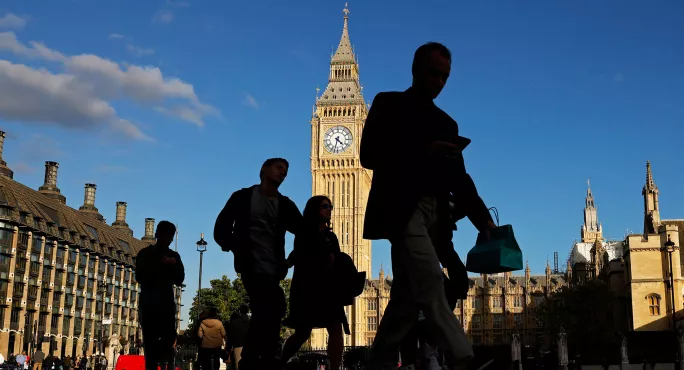Heads, governors and teachers to mass lobby MPs

Headteachers, governors and teachers are expected to join a mass lobby of Parliament next month - being organised by unions and membership bodies - to protest the “unprecedented crisis” facing schools.
The Association of School and College Leaders (ASCL), the NAHT school leaders’ union, the NEU teaching union, the National Governance Association (NGA) and Unison are organising a mass lobby of Parliament on Tuesday 20 June.
It comes as all four education unions are set to ballot members over strike action this term, after a unanimous rejection of the government pay offer.
The organisations said the action is aimed at bringing together members to lobby MPs over issues that have put schools in an “unprecedented crisis” situation, including funding, recruitment, retention and accountability.
- Strikes: Call for talks as heads and teachers vote on autumn walkouts
- Teacher pay: 6.5% pay rise recommended by pay body
- Strike threat: Heads and teachers to plan for joint strikes
Geoff Barton, general secretary of ASCL, said that the lobby would take a message to Westminster that schools and colleges “simply cannot go on like this”.
He said: “They are desperately short of the key resources that they need to function effectively - money and staff. This is not an accident but the result of political choices made by the government. Staff, students and parents all deserve better.”
Meanwhile, Paul Whiteman, general secretary of the NAHT, said that schools “deserve a better deal than they are getting from the government”.
He added: “We are lobbying to show the united voice of the profession in saying enough is enough.”
Dr Mary Bousted, joint general secretary of the NEU, said that MPs “should be left in no doubt after this lobby that we need urgent action to save our schools”.
Emma Knights, co-chief executive of the NGA, said: “School governors and academy trustees tell us that while their staff are making great efforts to provide a good education for pupils, their challenges have been increasing.
“These include families facing the cost-of-living crisis, more pupils with special educational needs or disabilities or mental health issues, lower rates of attendance since Covid and, sometimes, crumbling buildings.
“They are exacerbated by their staff shortages and by the withering of other public services for families. Governing boards sign off the budget and, given all the crucial demands, many have concerns at being able to both balance the budget and reward staff next year.”
After a period of intensive talks in March, the Department for Education made all four teaching unions the offer of a £1,000 non-consolidated payment for 2022-23 and an average 4.5 per cent rise for 2023-24.
But school leaders voiced concerns about the affordability of the government offer after it was revealed that just 0.5 per cent of the overall 4.5 per cent pay award for next year, plus the £1,000 one-off payment for this year, would come through new funding.
And last month, the general secretaries of all four education unions revealed they would draw up coordinated school leader and teacher strike action plans.
Register with Tes and you can read two free articles every month plus you'll have access to our range of award-winning newsletters.
Keep reading with our special offer!
You’ve reached your limit of free articles this month.
- Unlimited access to all Tes magazine content
- Save your favourite articles and gift them to your colleagues
- Exclusive subscriber-only stories
- Over 200,000 archived articles
- Unlimited access to all Tes magazine content
- Save your favourite articles and gift them to your colleagues
- Exclusive subscriber-only stories
- Over 200,000 archived articles
topics in this article



